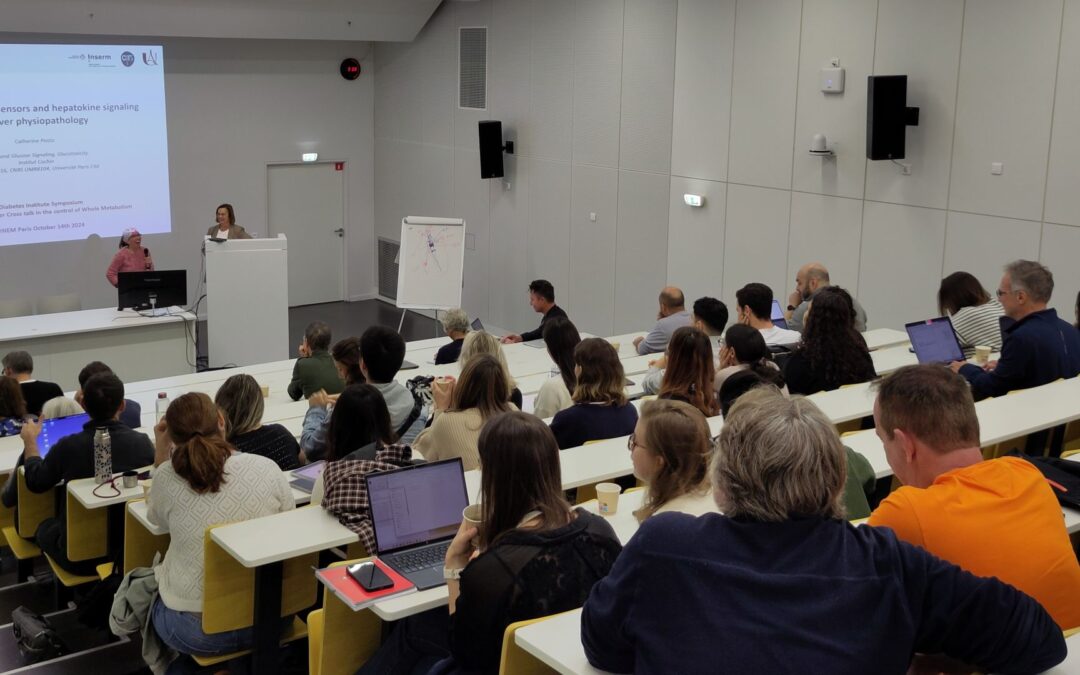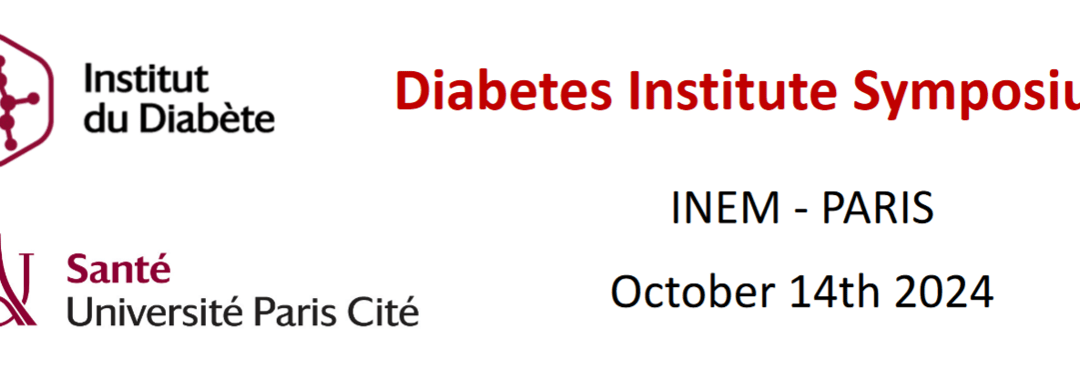Functional pancreatic beta cell mass in rodent and human
Our team works towards a better understanding of pancreatic beta cell development, a basis for the development of new therapies of diabetes.

Section of human fetal pancreas.
Staining with PDX1 (green) and KI67 (red).
© Adrian Villalba
Pancreatic beta cells are specialized factories devoted to produce large amounts of insulin that is stored within granules and secreted in a tightly regulated fashion. In the pancreas, beta cells are clustered with other endocrine cells (alpha, delta, PP cells), forming microorgans, the islets of Langerhans. Understanding pancreatic endocrine cell development and function is important on a fundamental point of view to better define complex cell types such as insulin-producing beta cells. Such knowledge is also crucial to better understand and treat specific forms of diabetes. Finally, it is now established that beta cell production from multipotent stem cells will require a perfect understanding of the way beta cells form during development. This is also the case for the development of therapeutic approaches based on regenerative medicine.
In the past, we learned a lot on beta cells and their development from rodent models. In rodent, pancreatic development can be studied in great detail. Moreover, islets can be prepared from which beta cells are purified and deeply studied. But we also learned that while rodent and human beta cells share many similarities, they differ on a number of important parameters. In this context, developing ways to analyze human beta cells and their development represents a major challenge.
Recently, our team has:
– Developed the first available functional human beta cell lines
– Used them to model beta cell in physiological and pathological conditions
– Developed innovative ways to study human pancreatic development
– Developed new approaches to study rodent beta, but also alpha and delta cells
Read more

Post Doctoral Position
Fully funded 2-year Post-doctoral position in the team of Dr. Ralf JOCKERS, at Institute Cochin

2024 Scientific Annual Day of the Diabetes institute
On Monday, October 14th, the annual Diabetes Institute Scientific Day took place, bringing together around 100 participants at the INEM. Opening of the Annual Scientific Day of the Diabetes Institute Maude LE GALL - Co-Director of the institute (left) Catherine POSTIC...

Diabetes Institute scientific day
The overall goal of this Diabetes Institute scientific day is to provide the most important and up-to-date research in the field of metabolism made at University Paris Cité. The workshop will focus on understanding the recent progress in adipose tissue and liver biology including metabolic and inflammatory processes in the control of the energy homeostasis. Special emphasis will be done to highlight the importance of the organ crosstalk and how signaling pathways in one tissue could affect the metabolism in other tissue.

Les jeunes de l’IHM seront à l’EASD
L’IHM Diabète est heureux d’aider les jeunes à participer à l’EASD en leur attribuant une bourse de 1000€
Rendez-vous en Septembre à Madrid !
